Journey Beyond Balance Sheets
Chapters
Key Takeaways
- Rachel's journey from accounting assistant to finance leader
- Challenges in cash flow management post-2020
- Modern finance technology vs. legacy systems
- Scaling businesses with ERP transformations
- Advice for aspiring finance leaders
Speakers
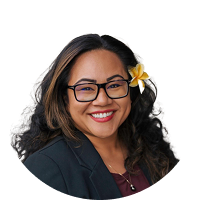
Guest Speaker
Rachel C.
Head of F&A, Filson

Hosted By
Amartya Singh
CEO & Cofounder, FinFloh
Episode Transcript
Amartya Singh: Hello, everyone! I'm your host, Amartya Singh, co-founder and CEO of FinFloh—a product built by and for modern finance teams. We're thrilled to welcome you to the season opener of our podcast, Inside the CFO Office. This is an exclusive channel for finance professionals to explore the journeys of finance leaders, hear their solutions to major challenges, and get their perspectives on the future of finance.
In today's episode, we’re delighted to have Rachel Camarillo as our very first guest. Rachel heads finance and accounting at Filson. With over 25 years of experience managing and leading finance and accounting teams across industries like retail, hospitality, and manufacturing, Rachel brings unparalleled expertise to the table. She was honored as one of Puget Sound’s 40 Under 40 in 2021 and is the founder of the Women in Manufacturing Washington chapter, empowering women in the industry. Most importantly, Rachel is someone I deeply admire and whose insights and advice I’ve greatly valued. Many fondly call her “sunshine in human form,” and I couldn’t agree more.
Rachel Camarillo: Thank you for having me, Amartya.
Amartya Singh: It’s fantastic to have you here, Rachel. I’m sure our listeners are eager to learn more about your incredible journey and your take on the current and future landscape of finance. To start, I’d love for you to share your personal journey. You began as an accounting assistant and have risen to lead finance and accounting at some of the most prestigious firms. What were the biggest challenges and lessons along the way?
Rachel Camarillo: Thank you, Amartya. My journey wasn’t the traditional path. Many of my peers from college went directly into auditing with big accounting firms, but I took a different route. My brain didn’t quite resonate with tax legislation and regulation—although I could manage it, I found it daunting. So, I chose to work in operations, where I fell in love with the business side of finance.
I started working young. My first “job” was with my mom and aunts, making and selling kitchen potholders and washcloth sets. We handled everything from painting designs to sewing and selling the products. It taught me the full process of running a business, even if I didn’t fully appreciate it back then.
Through high school, I worked retail jobs to support my family and save for college. I learned to open and close tills, perform pricing audits, and manage merchandising—skills I draw upon even now in my current role. In college, I juggled food service jobs and random accounting roles to make ends meet. Right after graduation, I started at Red Lion Hotels in Spokane, where I gained invaluable experience.
While my friends were auditing, I was on the other side, running audits, implementing ERP systems, and handling SEC and board reporting. Red Lion exposed me to the entire finance spectrum, from daily hotel operations to consolidation reporting. Those nine years were formative—I had amazing mentors and said “yes” to every opportunity, even when I didn’t know what I was getting into.
Amartya Singh: That’s incredible. The way you embraced opportunities, even without knowing the outcomes, clearly shaped your career.
Rachel Camarillo: Absolutely. During my time at Red Lion, I also pursued a parallel career in the restaurant industry. I helped open and manage restaurants, which was exhilarating and provided hands-on experience with leadership, employee training, and real-time problem-solving. Balancing corporate finance during the day and running restaurants at night gave me unique insights into business operations.
Eventually, I moved to Seattle to be closer to family and entered the manufacturing industry, which was a completely new challenge. I learned the terminology, processes, and complexities of scaling a company from $5 million to $40 million. That’s when I truly fell in love with manufacturing and founded the Women in Manufacturing Washington chapter to build a supportive community.
Amartya Singh: Wow, what an inspiring journey! Your ability to adapt across industries is remarkable. Speaking of challenges, let’s shift gears. Post-2020, cash flow management has become critical for businesses. Outdated practices and manual processes often hinder efficiency. What changes have you observed in cash flow management since 2020, and how have you navigated these challenges?
Rachel Camarillo: Cash flow management today requires long-term planning. During the pandemic, I faced scenarios where income streams disappeared overnight. For example, I joined an aviation company just a week before the city lockdowns. With no one traveling, revenue dropped to zero for months. We had to adapt quickly, running stress tests, renegotiating contracts, and educating teams about the financial impact of every decision.
Transparency was key. We involved every team member, from aircraft detailers to maintenance staff, helping them understand how their roles contributed to profitability. It was a powerful moment—everyone aligned around the “respect for the dollar” and worked toward collective financial resilience.
Amartya Singh: I love that phrase, “respect for the dollar.” It highlights the importance of collective responsibility for cash flow across an organization. Your emphasis on transparency and team involvement is a game-changer.
Rachel Camarillo: Exactly. When everyone understands the impact of their actions on the bottom line, it fosters accountability and smarter decision-making.
Amartya Singh: Let’s dive deeper into scaling businesses. As companies grow from $10 million to $100 million and beyond, the finance technology landscape evolves significantly. Can you share your insights on how finance technology has changed and your experience with ERP transformation projects?
Rachel Camarillo: Finance technology has advanced tremendously. Companies still using systems from the early 2000s are at a disadvantage. Modern tools not only collect data but also provide actionable insights. ERP transformations are particularly challenging but necessary for scalability. My approach has always been to minimize customizations. Instead of forcing a new system to replicate old processes, I focus on understanding the core capabilities of the system and aligning processes to leverage those features.
Mapping workflows is essential. It helps identify redundancies and ensures seamless integration. For example, open APIs are game-changers—they enable scalability and reduce manual intervention by automating backend processes. Transformation projects are painful, but they’re worth it when done strategically.
Amartya Singh: Great points. Legacy systems and excessive customizations often create more problems than they solve. Your roadmap-focused approach simplifies scaling while keeping the big picture in mind. One last question before we wrap up
Rachel Camarillo: First, don’t underestimate the potential of a finance career. It’s far from boring and offers immense opportunities to drive value and strategy within an organization. Second, be curious. Never stop asking questions or seeking to understand how things work. Curiosity not only expands your knowledge but also builds connections and fosters collaboration.
Finally, embrace opportunities early in your career. Saying “yes” to challenges helps you discover what fuels you. Over time, this clarity allows you to focus on what truly matters and deliver greater impact.
Amartya Singh: That’s fantastic advice. Curiosity and adaptability are indeed key to growth. Rachel, it’s been an absolute pleasure speaking with you. Your journey and insights are inspiring, and I’m sure our listeners will take away valuable lessons. Thank you for being part of our season opener.
Rachel Camarillo: Thank you, Amartya. Best of luck with FinFloh. I’m excited to see how it continues to grow and make a difference.
Amartya Singh: Thanks, Rachel. And with that, we conclude our first episode of Inside the CFO Office. Stay tuned for more engaging discussions with finance leaders. Until next time! Bye.
Latest Episodes
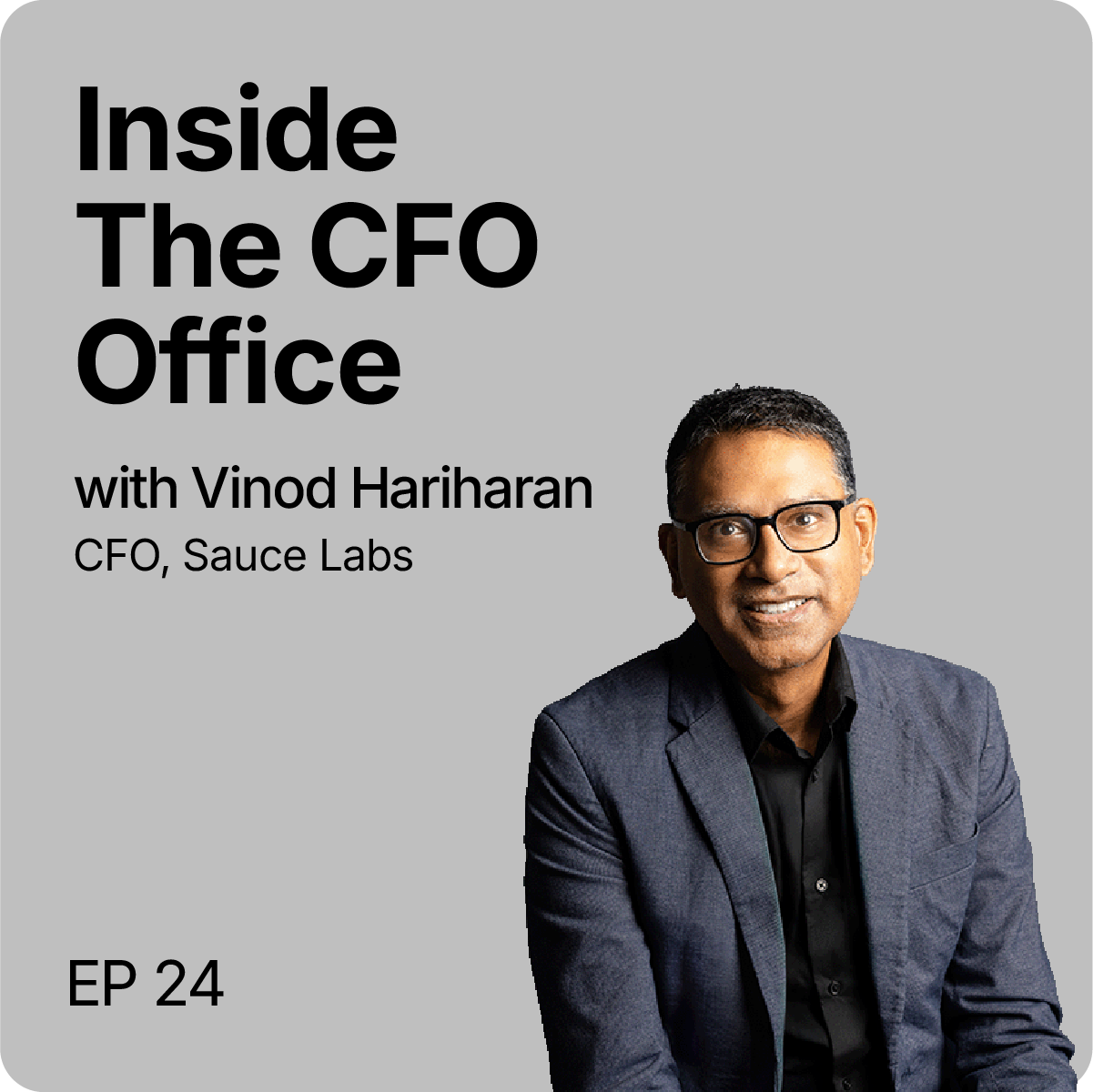
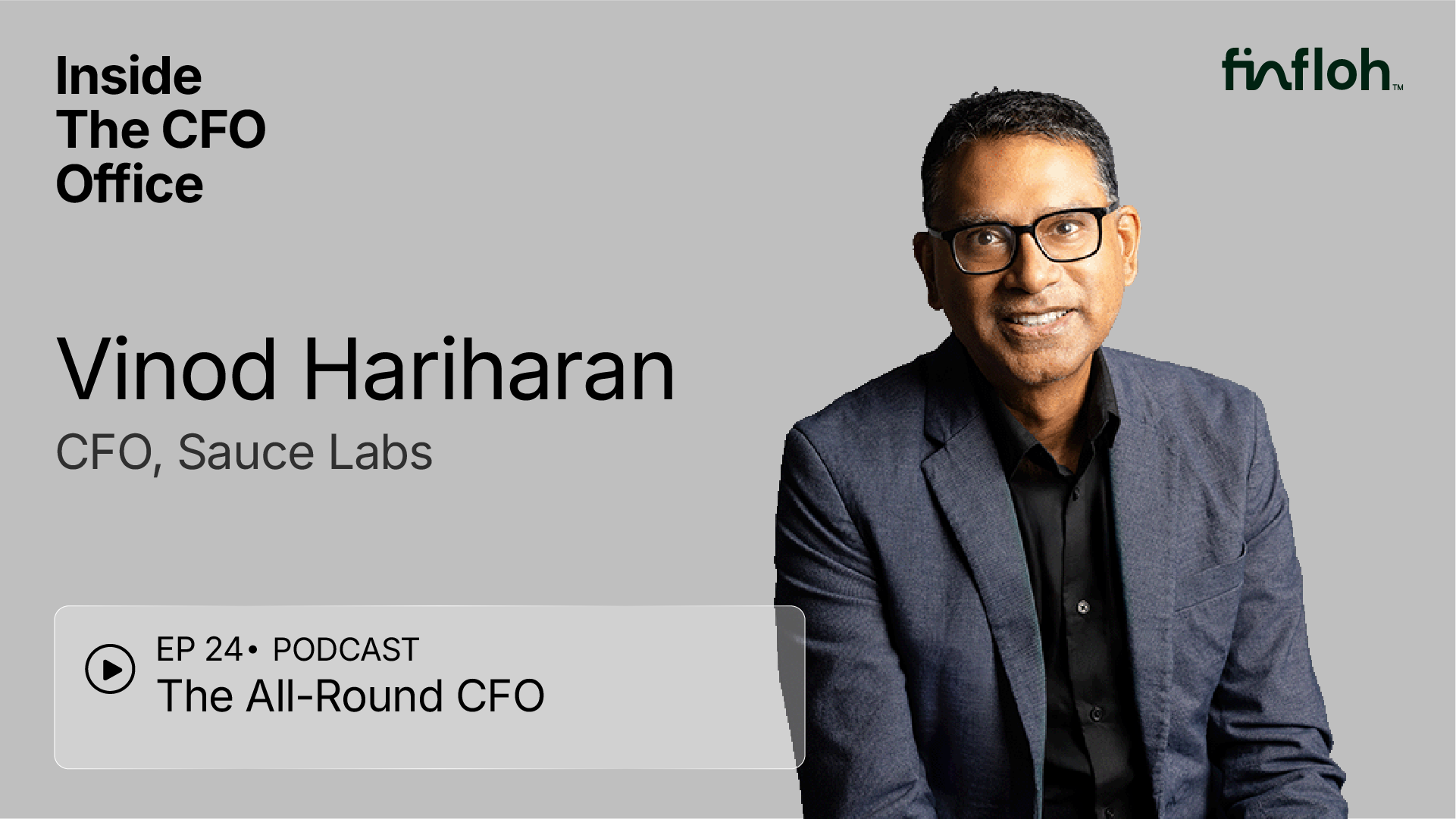

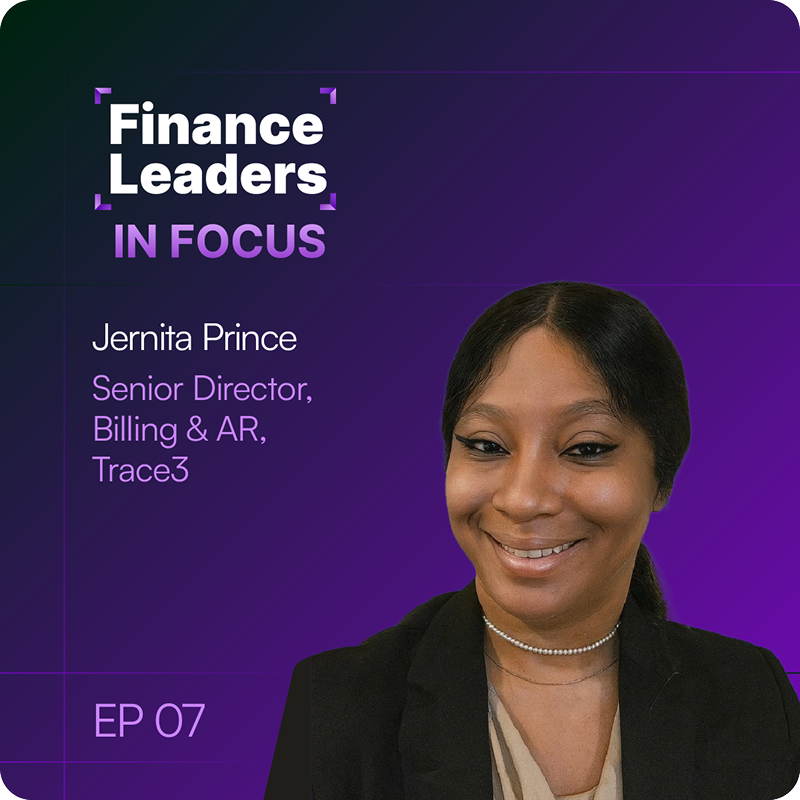
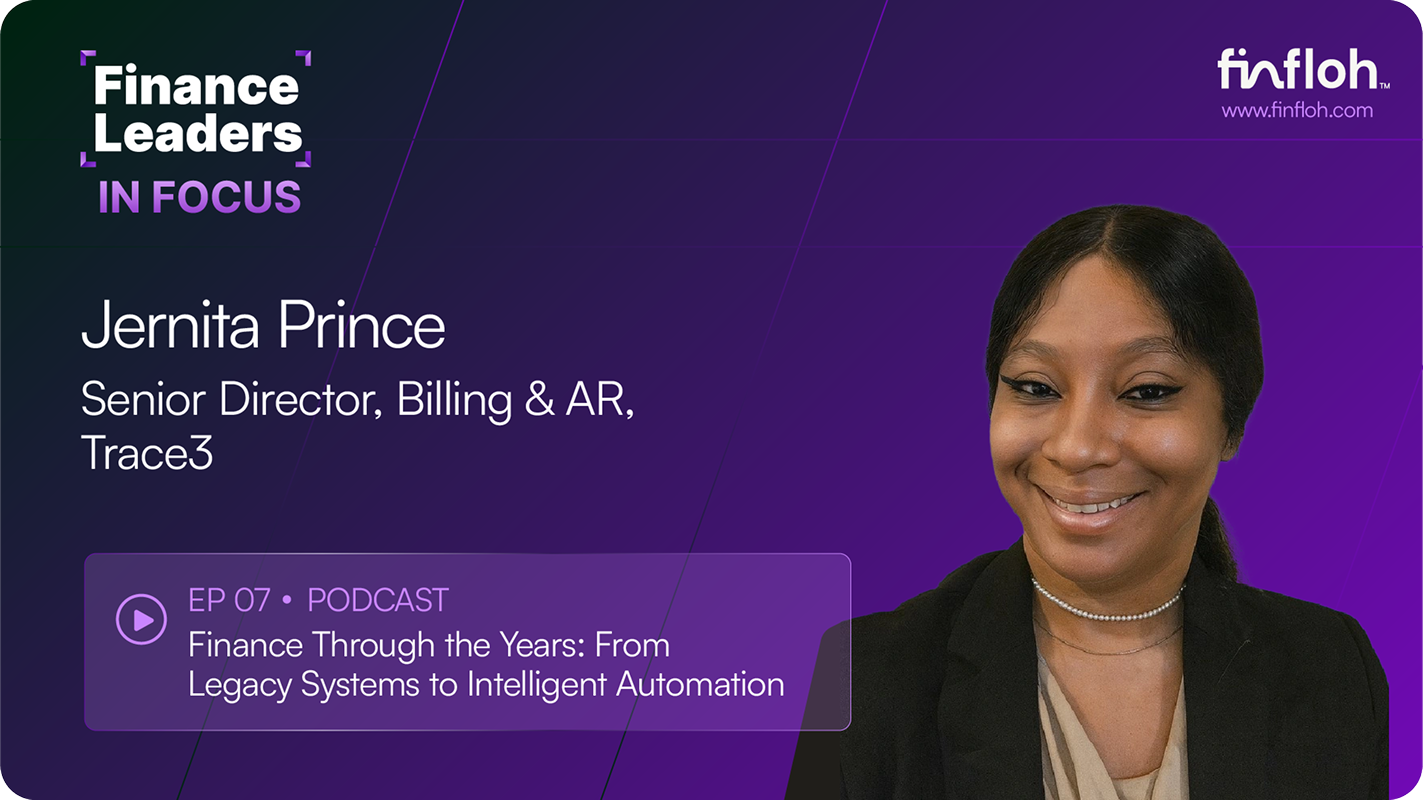

Explore the Full Potential of FinFloh
Supercharge Your Receivables Performance